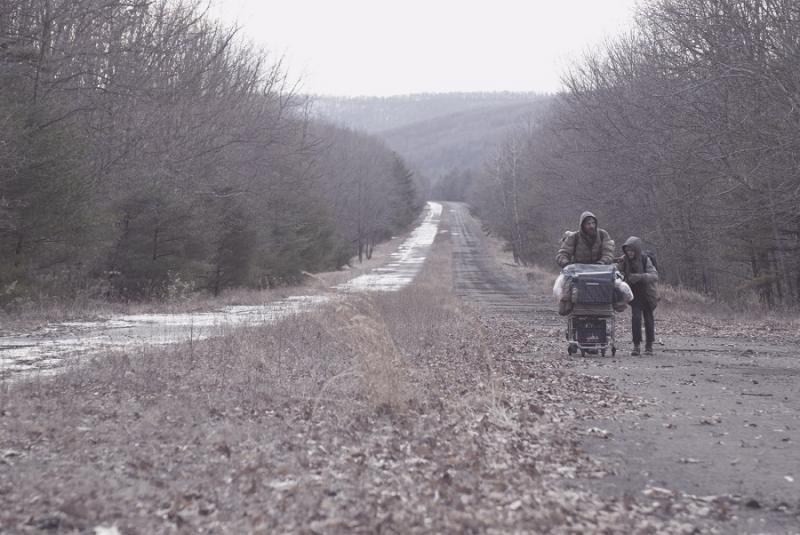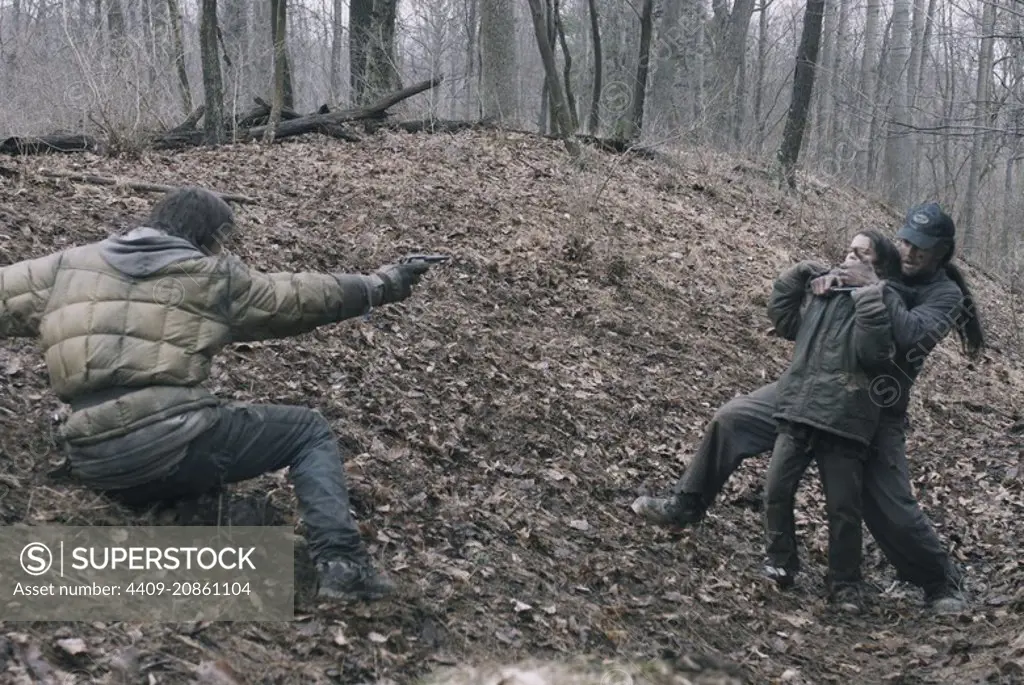The Road (2009)

“The Road,” directed by John Hillcoat and released in 2009, is a profoundly moving adaptation of Cormac McCarthy’s Pulitzer Prize-winning novel of the same name. Set in a bleak, post-apocalyptic world, the film presents a stark and harrowing portrayal of survival, hope, and the enduring bond between a father and his young son. With its somber tone, haunting visuals, and powerful performances, “The Road” stands as a poignant exploration of humanity’s resilience in the face of overwhelming adversity.
The narrative of “The Road” unfolds in a desolate, ravaged landscape where the world has been devastated by an unspecified catastrophe. The environment is starkly barren, with lifeless trees, gray skies, and ash-covered ground creating a pervasive sense of hopelessness and decay. In this grim setting, the story follows a father, played by Viggo Mortensen, and his young son, portrayed by Kodi Smit-McPhee, as they navigate a hostile and unforgiving world in their quest for safety and survival.

The father and son, who remain nameless throughout the film, embark on a perilous journey towards the coast, believing that it may offer a chance for a better future. Their journey is fraught with danger, from roving bands of cannibals to scarce resources and the constant threat of starvation. The father’s determination to protect his son and ensure his safety is a central theme of the film, reflecting both the depth of their bond and the lengths to which a parent will go to safeguard their child.
The film’s cinematography, by Javier Aguirresarobe, plays a crucial role in conveying the desolation and bleakness of the world. The use of muted colors, dim lighting, and wide, panoramic shots of the barren landscape create a sense of isolation and despair. The visuals are both haunting and beautiful, capturing the harsh realities of the post-apocalyptic setting while also highlighting moments of fragile beauty and hope.

One of the most striking aspects of “The Road” is its portrayal of the relationship between the father and the son. The father’s unwavering love and devotion to his child are evident in every action and decision he makes. Despite the harshness of their environment, the father strives to maintain a sense of normalcy and protect his son from the brutal realities of their world. The son, in turn, represents innocence and hope amidst the darkness, and his dependence on his father underscores the emotional core of the film.
Viggo Mortensen delivers a powerful and nuanced performance as the father, capturing both the character’s physical exhaustion and emotional turmoil. His portrayal of a man struggling to remain strong and hopeful for his son’s sake is both heart-wrenching and compelling. Kodi Smit-McPhee’s performance as the young boy is equally impressive, conveying the vulnerability and resilience of a child growing up in a world devoid of safety and security.

The film’s sparse dialogue and minimalistic approach to storytelling add to its emotional impact. The focus is placed on the characters’ actions and their interactions, allowing the audience to experience their journey and struggles on a deeply personal level. The haunting and evocative score by Nick Cave and Warren Ellis further enhances the film’s atmosphere, underscoring the sense of despair and fleeting moments of hope.
“The Road” is also a meditation on the themes of survival, morality, and the human condition. The film raises profound questions about the nature of humanity and the ethical dilemmas faced in extreme circumstances. As the father and son encounter other survivors, the film explores the concept of “good” and “evil” in a world where traditional moral boundaries have been eroded. The father’s decision to protect his son at all costs, even when faced with difficult choices, highlights the complex interplay between survival instincts and moral values.

In conclusion, “The Road” is a deeply moving and thought-provoking film that offers a powerful exploration of love, hope, and survival in a post-apocalyptic world. Through its evocative visuals, compelling performances, and poignant storytelling, the film captures the essence of Cormac McCarthy’s novel and presents a profound commentary on the human spirit. It is a haunting reminder of the enduring bond between parent and child and a testament to the resilience and strength that can emerge in the darkest of times. “The Road” stands as a testament to the enduring power of hope and the capacity for human connection in the face of overwhelming adversity.











